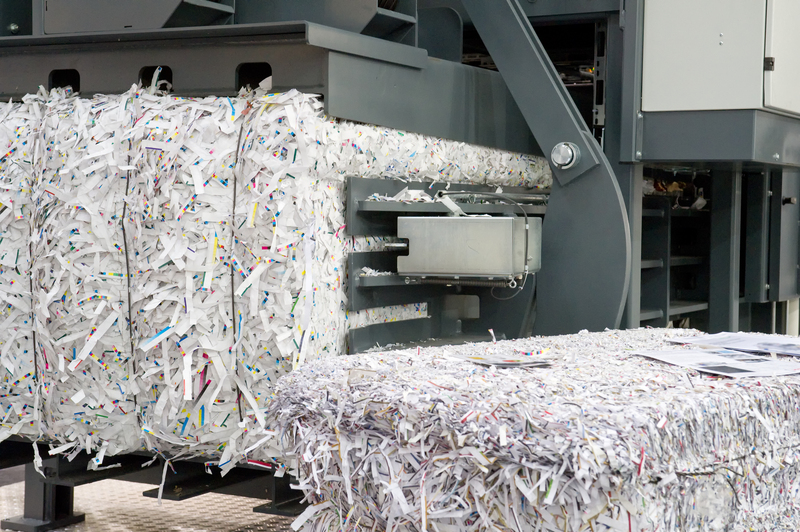The Must-Know Skip Hire Dos and Don'ts: Your Comprehensive Guide
Whether you're tackling a home renovation, managing construction waste, or clearing out your garden, hiring a skip is an incredibly efficient way to dispose of large amounts of rubbish. However, to make the most of skip hire services, there are some crucial dos and don'ts you should follow. In this in-depth article, you'll uncover everything you need to know before booking a skip--including practical waste disposal tips, legal advice, and expert recommendations for hassle-free skip hire.
Why Proper Skip Hire Practices Matter
When not managed correctly, skip rentals can cause unnecessary expense, legal headaches, or even safety hazards. By understanding the must-know skip hire dos and don'ts, you'll be well-placed to save money, protect the environment, and stay on the right side of the law.

Top Skip Hire Dos: Best Practices for Every Customer
1. Choose the Right Skip Size
- Assess Your Waste Volume: Estimate how much rubbish you need to remove before hiring. Ordering too small a skip means overflow, while overestimating wastes money.
- Discuss with Professionals: If unsure, ask your local skip hire company for guidance--they've seen every type of job and can make recommendations.
- Select Based on Project Type: Mini skips are ideal for small domestic jobs, whereas builders' or maxi skips are better for larger renovations or construction projects.
Pro Tip: Always opt for a slightly larger skip if in doubt. It's almost always cheaper than hiring a second skip!
2. Understand What You Can and Cannot Place in a Skip
Be aware of restricted waste types. Most skip hire providers have rules on what can be placed in their containers.
- Accepted Items: Brick, concrete, wood, metal, soil, garden waste, furniture, non-electrical fittings.
- Prohibited Items: Asbestos, fridges, freezers, tyres, batteries, electrical goods (WEEE items), solvents, paints, medical waste, and hazardous chemicals.
Always check your local council or skip hire supplier's list for specific restrictions.
3. Sort and Organise Waste Efficiently
- Segregate Recyclables: Separate metals, plastics, and cardboard for recycling, if possible.
- Flatten Bulky Items: Break down larger materials to maximise your skip's capacity.
- Layer Waste: Place heavier items at the bottom and lighter waste on top for better compaction and reduced air pockets.
4. Obtain the Correct Skip Hire Permits
If you plan to place your skip on a public road or highway, you will usually need a skip permit from your local council.
- Contact the Council: Many skip hire companies can arrange permits, but always double-check to avoid fines.
- Allow Sufficient Time: Permits can take several days to approve--factor this into your project timeline.
Note: Skips placed on private property do not typically require a permit.
5. Comply with Safety and Legal Guidelines
- Never Overfill: Fill the skip only up to its "fill line"--overloading is illegal and dangerous, as skips must be transported safely.
- Use Traffic Cones and Lights: If your skip is on a road, ensure it's visible at night and does not obstruct pedestrians or vehicles.
- Keep Access Clear: Ensure there's clear access for delivery and collection trucks.
Skip Hire Don'ts: Common Mistakes to Avoid
1. Don't Ignore Prohibited Waste Rules
- Hazardous Waste is Illegal: Mixing asbestos, chemicals, or electrical items into your general waste can result in hefty fines and site delays.
- Ask About Problematic Items: Unsure about a waste type? Always check before placing it in the skip.
2. Don't Block Access or Public Spaces
- Plan Placement Carefully: Placing skips in difficult-to-reach spots or blocking driveways, footpaths, or fire exits can cause inconvenience and even emergencies.
- Check for Overhead Wires: Inform your skip provider of any obstacles that might affect delivery or pickup.
3. Don't Overload the Skip
- Respect Fill Levels: Overflowing a skip makes it unsafe to transport. The hire company may refuse collection or charge extra fees.
- Even Out Distribution: Distribute weight evenly for safe transport and handling.
4. Don't Burn Waste in the Skip
- Burning is Illegal: Burning materials in your skip can damage the container, risk fire spreading, and break environmental laws.
- If You Need to Dispose of Flammable Materials: Speak to your provider for safe disposal solutions.
5. Don't Leave the Skip Unattended or Accessible
- Prevent Fly-Tipping: Skips left open and unmonitored can be filled with others' rubbish--making you liable for unlawful waste.
- Use Covers or Netting: Consider securing your skip when not in use, especially for long hire periods or in public places.
Legal & Environmental Responsibilities in Skip Hire
Hiring a skip isn't just about convenience--you also have legal and environmental obligations. Awareness of these responsibilities can protect you from fines and contribute to more sustainable waste management.
Your Legal Obligations
- Duty of Care: You must ensure your waste goes to a licensed facility. Always check that your skip provider is a registered waste carrier.
- Compliance with Waste Types: Never mix hazardous waste with general rubbish. Special services are available for dangerous materials.
- Permit Adherence: Skips on public land require valid permits. Failing to obtain one can result in legal action.
Your Environmental Responsibilities
- Prioritise Recycling: Choose skip hire firms that sort and recycle as much of your waste as possible.
- Reduce Landfill: Flatten materials, segregate waste, and avoid non-recyclable items where possible.
- Avoid Fly-Tipping: Ensure that your waste is not dumped illegally. Request a waste transfer note or proof of disposal if possible.
Expert Tips for Smooth Skip Hire
- Book Early: Skips are in high demand, especially during spring and summer renovations.
- Communicate Clearly: Provide exact delivery instructions and let the company know about access restrictions or time limits.
- Monitor Your Skip: Regularly check your skip for overfilling, fly-tipping, or prohibited items.
- Prepare the Area: If the skip is on your driveway, lay down boards to protect the surface from scratches and marks.
- Finish Within Your Hire Period: Arrange prompt collection to avoid additional charges.

FAQs: Your Skip Hire Questions Answered
What size skip do I need for house clearance?
For most house clearances, a 6 or 8 cubic yard skip is sufficient. For full renovations or larger homes, a 10-12 yard skip may be better.
Can I put old sofas or mattresses in a skip?
Yes, most soft furnishings are allowed. However, some councils restrict mattresses, and extra charges might apply--check with your provider.
How long can I keep a skip?
Typical hire periods are 1-2 weeks, but this varies. Let your rental company know if you need longer, but note that additional fees may apply.
What happens to my waste after collection?
Responsible skip hire companies separate and recycle as much waste as possible at dedicated facilities before sending anything to landfill.
Conclusion: Make the Most of Your Skip Hire Experience
Proper skip rental practices are key to saving money, fostering safety, and protecting the environment. By following these essential skip hire dos and don'ts, you can enjoy a hassle-free waste disposal process--whether for minor DIY, household junk removal, or a major construction project.
For peace of mind, always choose a reputable, licensed skip hire provider, get familiar with the rules in your local area, and stick to the above tips. Done right, skip hire is a cost-effective and responsible way to keep your property clean and clutter-free.
Ready to book your skip? Review local skip hire options now to get the best service and pricing.
Summary Checklist: Dos and Don'ts at a Glance
- ? Do choose the right skip size for your project.
- ? Do check waste restrictions and legal requirements.
- ? Do fill the skip safely and responsibly.
- ? Don't overload or burn waste in your skip.
- ? Don't ignore permits or safety rules.
- ? Don't place hazardous materials in any skip.
By adhering to these essential skip hire dos and don'ts, your waste disposal will be efficient, lawful, and environmentally conscious.